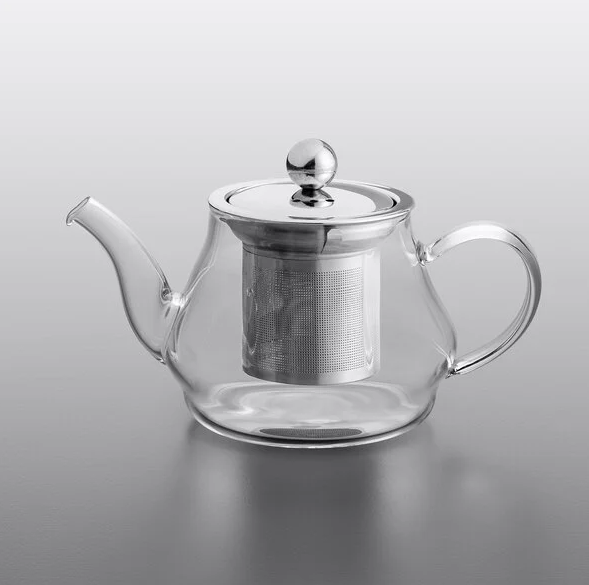Adaptogenic Tea Guide
A cup of hot soothing tea is always a good way of relieving stress. In fact, having a few tea breaks during a stressful day is often very relaxing on its own. Many teas such as chamomile or lavender have soothing and calming properties, and green tea is a source of L-theanine, an amino acid that provides a calming effect too. But some teas may help you deal with stress even better–they are called adaptogens.
What is adaptogenic tea?
Adaptogens are a special group of plants and mushrooms that may help to increase the human’s body resistance to physical, chemical or biological stress[1]. They are completely natural and many of them are an essential part of traditional medicines. To be called an adaptogen, a plant, herb or mushroom must be “non-toxic in normal doses, produce a non-specific response, and have a normalizing physiologic influence.“[2] While many plants may show some adaptogenic activity, there are only a few of them that are true adaptogens. The most important adaptogenic plants are Schisandra, Rhodiola, Siberian ginseng, Asian Ginseng, ashwagandha and tulsi. Some mushrooms are considered adaptogenic too, such as lion’s mane or Hericium erinaceus.The history of adaptogens
Adaptogens as we know them were first discovered and researched during the Second World War. They were used for increasing stamina, performance and endurance. Even though they were highly valued in the traditional Indian and Chinese medicine, and well-researched by the Russian scientists, it was not until about 50 years later that adaptogenic plants started to attract more attention from western scientists[3].What are the benefits of adaptogens?
Adaptogenic herbs may offer a wide set of health benefits. Although all of them will have an effect on stress and stress-related conditions, they may also show anti inflammatory activity, heart protective activity, anti-tumor activity, antibacterial activity, antiviral activity, antidepressant and anxiolytic activity and help increase the total lifespan. They may help with flu, pneumonia and wounds, high or low blood pressure and increase the overall quality of life. One of them, Ashwagandha, has been an important tonic in the Ayurveda for increasing the life’s vital energy and reducing fatigue[4]. Unlike other stimulants, adaptogens won’t reduce your energy once the effect is gone and they should not cause serious side effects or addiction.Best Adaptogenic Herbal Tea
Panax ginseng
Panax ginseng or Asian ginseng is one of the most popular herbs in Asia, especially Korea. It’s available as a supplement and as tea. Studies showed that Asian ginseng may help with depression and anxiety caused by stress, and with many other diseases: osteoporosis, heart diseases, arthritis, diabetes and allergic astma[10]. Tea blends to try: Seven and Afer Noon Delight with Asian ginsengEleutherococcus senticosus
Eleuthero Root or Siberian ginseng is different from the Asian panax ginseng. It’s native to East Asia and Russia and often used for improving mental performance[5]. Except being useful for dealing with stress, Siberian ginseng may help in prevention of cancers, diabetes, heart diseases and inflammation[6]. Tea blends to try: Vanilla Mint Sencha with Siberian ginsengWithania somnifera
Ashwagandha or Withania somnifera is one of the most important plants in traditional Indian medicine Ayurveda. Ashwagandha tea is considered beneficial for the overall health by improving the resistance to stress[7]. This plant may help with reliving the symptoms of severe stress,[8] help with Parkinson’s and Alzheimer’s disease, anxiety and arthritis. Because ashwagandha root may be beneficial for the overall quality of life and premature aging, in Ayurveda it belongs to a group of plants called Rasayana-rejuvenating and anti-aging plants[9]. The other common name for this root is the Indian ginseng. Tea blends to try: Vedic (healer) with AshwagandhaGlycyrrhiza glabra
The common name for Glycyrrhiza glabra is licorice, and it’s one of the most beneficial and sweet roots in the world. Licorice as an adaptogen may help with adrenal fatigue[11]. The symptoms of adrenal fatigue are low energy levels, lack of motivation and brain fog[12]. Licorice may cause some side effects, so always consult your doctor before incorporating larger doses of licorice into your diet. Tea blends to try: Lemon Zest, OM herbal, Tulsi Chai and Shanti HerbalRhodiola rosea
Rhodiola or Rose root is an adaptogenic plant that has been traditionally used for treating depression, anxiety, fatigue and headaches. Studies showed that it may be helpful in treating major depressive disorder with causing less side-effects than regular medicine[13].Schisandra chinensis
Schisandra chinensis or the five-berry fruit was the first herb described as an adaptogen in the 1940s. However, even before it was used in the Traditional Chinese medicine for treating insomnia, fatigue and weakness, excessive sweating, gut health, cardiovascular and respiratory problems[14]. Studies showed that Schisandra chinensis may be beneficial for the immune system, increase physical endurance and cognitive function[15].Best Adaptogenic Tulsi Tea
Ocimum sanctum, tulsi or the Holy Basil is one of the most widely available adaptogens in western countries. It’s caffeine free and has a very pleasant scent and flavor reminiscent of the regular culinary basil scent. Tulsi is available in powdered and leaf form. Studies showed that this “Queen of herbs“ may have a wide range of benefits. It contains Vitamin A and C, calcium, zinc, iron and chlorophyll and many other beneficial organic compounds such as eugenol[16]. Primarily it’s used for treating bronchitis, asthma and flu. But studies showed that tulsi may also be very great in dealing with stress, boosting immunity, treating inflammation, arthritis and hypertension, aiding digestion, helping with diabetes and cancers and even act as a repellent and an anti-aging plant[17]. Tulsi has been known for thousands of years and has earned a special place in many traditional medicines[18]. The effect of tulsi on depression may be the same as the one of antidepressants and may be beneficial when dealing with psychological and immunological stress[19]. So far, tulsi is considered safe for short term use, but extra attention is needed if you are suffering from hypothyroidism, are pregnant or taking drugs for lowering blood sugar levels[20]. Tea blends to try: Tulsi Chai tea, Shanti Herbal, Clari’tea Herbal, Holy DetoxAre there side effects?
Adaptogenic herbs are caffeine free, gluten free and suitable for many people. Recently, Camellia sinensis has been described as an adaptogen too. Studies showed that real tea too, may help increase resistance to different kinds of stress,[21] but it’s still not recognized as a real adaptogen. Unlike many other herbs, real tea always contains caffeine. Some adaptogenic plants may interact with some medicine or should not be taken for longer periods. They are not only used for reducing stress, but for other health conditions too.Disclaimer: This article is for informational purposes only. It’s not intended to replace medical advice, diagnosis or treatment. Every person is different and may react to different herbs and teas differently. Never use teas or herbs to treat serious medical conditions on your own. Always seek professional medical advice before choosing home remedies.
References
[1] https://www.ncbi.nlm.nih.gov/pmc/articles/PMC6240259/ [2] https://www.annualreviews.org/doi/10.1146/annurev.pa.09.040169.002223 [3] https://www.researchgate.net/publication/236462312_Adaptogens_A_Review_of_their_History_Biological_Activity_and_Clinical_Benefits [4] https://www.researchgate.net/publication/236462312_Adaptogens_A_Review_of_their_History_Biological_Activity_and_Clinical_Benefits [5] https://www.sciencedirect.com/topics/medicine-and-dentistry/adaptogen [6] https://www.researchgate.net/publication/257446934_Eleutherococcus_senticosus_Studies_and_effects [7] https://www.ncbi.nlm.nih.gov/pmc/articles/PMC3573577/ [8] https://www.sciencedirect.com/topics/medicine-and-dentistry/adaptogen [9] https://www.sciencedirect.com/topics/medicine-and-dentistry/withania-somnifera [10] https://www.ncbi.nlm.nih.gov/pmc/articles/PMC5628357/ [11] https://www.sciencedirect.com/topics/medicine-and-dentistry/adaptogen [12] https://www.health.harvard.edu/blog/is-adrenal-fatigue-real-2018022813344 [13] https://www.nccih.nih.gov/health/rhodiola [14] https://www.ncbi.nlm.nih.gov/pmc/articles/PMC6412213/ [15] https://www.ncbi.nlm.nih.gov/pmc/articles/PMC6412213/ [16] https://www.ncbi.nlm.nih.gov/pmc/articles/PMC3249909/ [17] https://www.researchgate.net/publication/315119094_Tulsi_A_holy_plant_with_high_medicinal_and_therapeutic_value [18] https://www.researchgate.net/publication/269846832_Therapeutic_benefits_of_holy_basil_TULSI_in_general_and_oral_medicine_A_review [19] https://www.ncbi.nlm.nih.gov/pmc/articles/PMC5376420/ [20] https://www.webmd.com/vitamins/ai/ingredientmono-1101/holy-basil [21] https://www.researchgate.net/publication/228515509_Adaptogenic_potentials_of_Camellia_sinensis_leaves_Garcinia_kola_and_Kola_nitida_seeds
More from:
SLL



Leave a comment